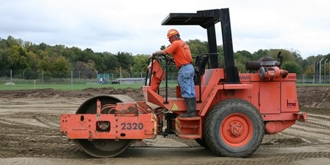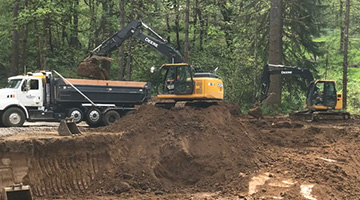Comprehensive Excavation Methods: Grasping the Fundamentals for Success
The careful preparation, specific implementation, and careful interest to detail needed in excavation tasks require a thorough strategy that includes various basic facets. The true proficiency exists not merely in understanding these fundamentals but in perfectly incorporating them to navigate the intricacies of excavation jobs with skill.
Comprehending Excavation Job Planning

Successful excavation projects are built on the structure of comprehensive and precise preparation. The preliminary stage of any excavation project is the preparation phase, where important choices are made that can dramatically affect the outcome of the job. Throughout this phase, it is necessary to collect all relevant information about the website, consisting of topographical surveys, dirt make-up, and any type of prospective threats that may exist. Recognizing the project scope, budget plan, and timeline restrictions is important for producing an extensive excavation strategy that ensures the job's success.
One key facet of excavation task planning is the development of a thorough timeline that outlines the series of turning points, deadlines, and activities. By carefully considering all these elements throughout the preparation phase, excavation jobs can be performed successfully and properly, leading to effective outcomes - dump truck companies in ohio.
Dirt Analysis and Website Examination
Carrying out detailed soil evaluation and site evaluation is a critical action in the preparation stage of any excavation project. Soil evaluation involves identifying the structure, framework, and residential or commercial properties of the soil at the excavation site. This information is critical for recognizing the dirt's bearing capability, dampness web content, and possibility for erosion, which are essential consider establishing the excavation approaches and equipment required for the project.
Website analysis surpasses dirt evaluation and incorporates a broader evaluation of the overall website conditions. This examination consists of determining any type of possible risks, such as below ground energies, ecological issues, or unpredictable surface, that might affect the excavation procedure. By extensively examining the website, task managers can develop reliable excavation approaches that focus on safety and security, performance, and environmental security.
Using innovative innovations like ground-penetrating radar, soil tasting, and drone studies can enhance the precision and effectiveness of soil analysis and site analysis. Spending time and resources in these initial steps can eventually conserve time and stop expensive hold-ups or difficulties during the excavation procedure.
Tools Option and Application
Reliable excavation jobs count greatly on calculated equipment choice and use to guarantee optimum efficiency and performance. Selecting the appropriate tools for the work is essential in taking full advantage of efficiency and reducing downtime. Factors such as the kind of soil, depth of excavation, and project extent play a substantial duty in figuring out one of the most appropriate tools for the task handy.

Along with picking the proper tools, correct usage is essential to project success. Operators must be trained to handle the tools safely and successfully - lancaster excavation. Regular upkeep checks and prompt repair work assist stop malfunctions and make sure consistent performance throughout the project
Security Measures and Laws Conformity
In the realm of excavation tasks, prioritizing safety and security actions and conformity with policies is extremely important to making certain a legitimately audio and protected functional atmosphere. Safety measures incorporate a variety of methods, including performing extensive website assessments, executing correct signs and barriers, and supplying adequate safety training for all employees involved in the excavation process. Adherence to policies, such as OSHA demands in the USA, makes sure that the excavation job fulfills the required criteria to shield workers, spectators, and the surrounding environment.

Monitoring Progression and Adjusting Approaches
Exactly how can predict managers efficiently track the improvement of excavation jobs and adapt their strategies appropriately to optimize end results? Monitoring progress is necessary for making sure that excavation jobs stay on track and fulfill target dates.

Verdict
In final thought, grasping the basics of extensive excavation strategies is essential for the success of any type of project. By recognizing task planning, examining soil and website problems, picking suitable tools, adhering to safety and security policies, and monitoring development, project supervisors can guarantee a efficient and smooth excavation process. Executing these methods will bring about effective outcomes and decrease possible risks or setbacks throughout the excavation job.
The initial stage of any type of excavation project is the planning phase, where vital choices are made that can considerably impact the end result of the task. Understanding the job extent, budget, and timeline restrictions is critical for developing a thorough excavation strategy that makes certain the job's success.
How can forecast supervisors successfully track the advancement of excavation tasks and adjust their strategies accordingly to maximize results? By very closely checking development and being willing to adjust methods, task managers can lancaster excavation boost the total success of excavation tasks.
By understanding project preparation, assessing dirt and site conditions, choosing proper equipment, complying with security policies, and keeping an eye on progress, job supervisors can make certain a effective and smooth excavation process.